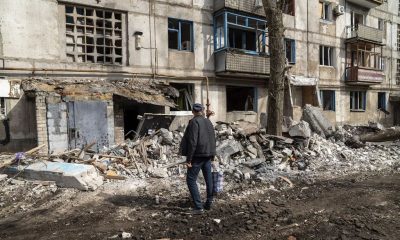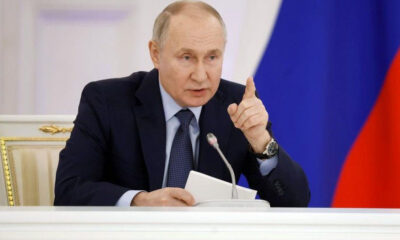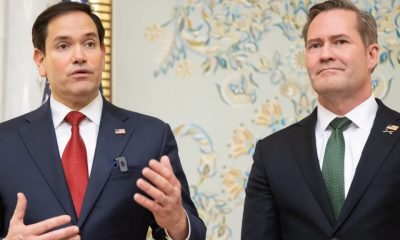International
A day after it was ‘annexed’, crucial city returned to Ukraine

The banner hanging near Red Square was triumphant. It read: “Donetsk, Luhansk, Zaporizhzhia, Kherson, Russia! Together for ever!” On Friday Vladimir Putin formally announced the annexation of these Ukrainian territories and celebrated with a victory concert in Moscow. Russia’s president addressed a cheering crowd waving white blue and red tricolours. “Welcome home,” he said. “Russia! Russia!” they replied.
For ever turned out to mean less than 24 hours. As workmen dismantled the stage, put up on the cobbled square outside the Kremlin, Ukrainian troops marched into the eastern city of Lyman, from where Putin’s army had just made an inglorious retreat. At one point Lyman’s liberators even performed a victory dance, hopping cheerfully from side to side along a sandy forest path.
They were, according to the Kremlin’s version of reality, encroaching on Russia’s sovereign territory. In his angry west-bashing speech on Friday, delivered before Russia’s supine government, Putin had declared that Donetsk province which includes Lyman would be officially incorporated into the Russian federation. It was, he suggested, a restoration of historical Russian lands.
Since his full-scale invasion in February Putin has managed to seize a large swathe of the south and east of Ukraine. It amounts to about 15 per cent of the country. His expectation was that absorbing these territories would be relatively straightforward and similar to Russia’s annexation of Crimea in 2014, an operation carried out by undercover special forces officers dubbed “little green men”.
READ ALSO:
- Joining witch society, better than Nollywood, says Olamide Odunlade
- Disquiet in PDP over Atiku’s presidency pledge to Wike, Southeast, others
- Nigerian doctor detained by Saudi police begs FG for help
This turned out to be untrue. Residents in Kherson and Zaporizhzhia showed little enthusiasm for their new Russian masters. Many fled to Ukrainian government-controlled areas. Even in the east only a small minority in freshly occupied towns and cities supported Russia. Faced with a distinct lack of popular consent the presidential administration in Moscow put on hold plans to carry out “referendums” – fake ones, according to the international community.
The plans were hastily revived as it became increasingly clear that Russia was losing the war. Over the summer Ukraine’s president Volodymyr Zelenskiy gave his commanders orders to recapture the southern city of Kherson, lost in the first days of the conflict. He promised a major counter-offensive. The Kremlin responded by hurrying troops to the right bank of the Dnipro river, as Kyiv had intended.
The offensive happened but the real blow fell elsewhere – on weakly defended Russian positions in the north-east, on the other side of the country. In a few stunning days in September, Ukrainian forces liberated the cities of Izium, Balakliia and Kupiansk and an area half the size of Wales. They found mass graves, torture chambers, and Russian armoured vehicles, abandoned as their crews ran away in panic, donning civilian clothes.
Since then Ukrainian forces have continued their push. By Friday they had effectively surrounded Lyman and cut off the 5,000 or so Russian troops marooned inside. According to Serhiy Haidai, Luhansk’s regional governor, the occupying soldiers requested permission from their superiors to retreat. It was refused. For some the decision turned out to be a death sentence. Footage suggests Ukrainian artillery and drones picked off convoys trying to escape.
It shows burnt-out tanks next to the side of a muddy road. Lying on the verge are the bodies of several soldiers. Other videos suggest dozens and possibly hundreds of Russian servicemen were taken prisoner – a bedraggled and vanquished force, seemingly left to their fate by a callous and incompetent military command back in Moscow.
Across a significant chunk of northern Donetsk flags were being raised on Saturday – Ukrainian ones. Ukrainian forces liberated several settlements around Lyman including Yampil, Novoselivka, Shandrigolovo and Drobysheve. In Shandrigolovo Ukrainian soldiers pulled down the Russian tricolour. They threw it to the ground and stomped on it. In Lyman they ripped down the Russian sign outside the city’s police station.
These images, of course, will not be broadcast on Russian state television. But they pile further pressure on Putin whose decision last month to mobilise up to one million new soldiers has seen support for his war effort dip. There have been protests in some regions including Dagestan in the North Caucasus. And long queues at the international borders with Georgia and Finland. Young men have sought to dodge the draft, and to avoid the fate of Lyman’s luckless Russian defenders.
READ ALSO:
- Over 120 fans die in Indonesia football stampede
- Nullified Osun APC primary: No cause for alarm –Oyetola’s aide
- PDP Crisis: Former, current NWC members disagree over N151m returned housing allowance
Russian nationalist bloggers expressed fury on Saturday at the way Moscow’s “special military operation” is being prosecuted. And Ramzan Kadyrov, Chechnya’s thuggish president, suggested the moment was right for Moscow to deploy a low-yield nuclear bomb in Ukraine, if it wished to avoid further military disasters. In his speech on Friday Putin hinted he would be prepared to use “all means” to defend Russian land, though how far he is prepared to go is unclear.
Kadryov pointed the finger of blame at Russia’s cerebral chief of general staff Valery Gerasimov. He also attacked the commanding officer who presided over the Lyman defeat, accusing him of idiocy, and of running the campaign remotely, from 150kms away. The upshot is this: that Russia’s military establishment is bitterly divided, and unhappy, as the war in Ukraine goes from bad to worse.
By signing “accession treaties” formalising Russia’s illegal annexation of the four occupied regions, Putin has dramatically raised the stakes. He had bound his political fortunes after 22 years in power with the successful outcome of his invasion. There were cheers and clapping on Friday, from Russia’s political elite gathered inside the Kremlin. But the euphoria was short-lived.
In a defiant response to Putin’s ceremony in Moscow, Zelenskiy, announced that his country was formally applying for fast-track membership of the Nato alliance, adding that Ukraine would not hold any peace talks with Russia as long as Putin was president. The Biden administration, meanwhile, announced a $12.4bn (£11.1bn) package of further aid, some of it military.
Meanwhile Zelenskiy’s senior advisers poked fun at Putin. Writing on Twitter Mykhailo Podolyak observed: “Twenty hours ago on Red Square, Russia’s leadership chanted ‘hooray’ for the annexation of new territories. ‘Russian Federation borders have no ending.’ Now Russian troops are leaving another strategic city and propagandists are looking for culprits. Reality can hurt if you live in a fantasy world.”
What happens next will be decided on the battlefield, not on a gilded table where Putin signed his annexation document. Ukraine’s defence ministry on Saturday tweeted a photo of the Ukrainian flag being raised with the words: “Ukrainian air assault forces are entering Lyman.” The army, it added, “will always have the decisive vote in today’s and any future ‘referendums’”.
International
$100m coin collection buried for decades to be auctioned

$100m coin collection buried for decades to be auctioned
A coin collection, much of which remained buried underground for over 50 years, is expected to surpass $100 million at auction, according to experts.
Named the Traveller Collection, this extraordinary assemblage is believed to be the most valuable coin collection ever brought to auction.
The coins will be sold gradually over the next three years, with the first auction set for May 20.
Beyond its immense value, the collection’s origins make for a fascinating tale.
Spanning over 100 territories and encompassing coins from ancient times to the modern era, the collection is being auctioned by Numismatica Ars Classica.
What sets it apart is that most of the coins remained hidden underground for half a century before resurfacing.
According to a press release shared with CNN, the anonymous collector behind the collection began acquiring gold coins after the Wall Street Crash of 1929.
Over time, he developed “a taste for coins with great historical interest, beauty and rarity” and eventually amassed approximately 15,000 coins.
During the 1930s, he and his wife traveled extensively across the Americas and Europe, acquiring rare and historically significant coins while meticulously documenting their purchases.
READ ALSO:
- EFCC re-arraigns son of ex-PDP chairman for alleged N2.2bn oil subsidy fraud
- Group says Natasha’s recall will deepen democracy
- We welcome Gov Makinde’s U-turn on Shari’ah panel – MURIC
Despite settling in Europe at a time when Hitler’s Nazi party loomed over the continent, the collector sensed the impending danger. In response, he carefully packed the coins into cigar boxes, which were then placed inside aluminum containers and buried underground, where they remained undisturbed for five decades.
Among the collection is a 50 Toman coin, part of an “exceedingly rare” set minted in Tehran and Isfahan during the late 18th and early 19th centuries.
International
AI will replace doctors, teachers, others in 10 years – Bill Gates
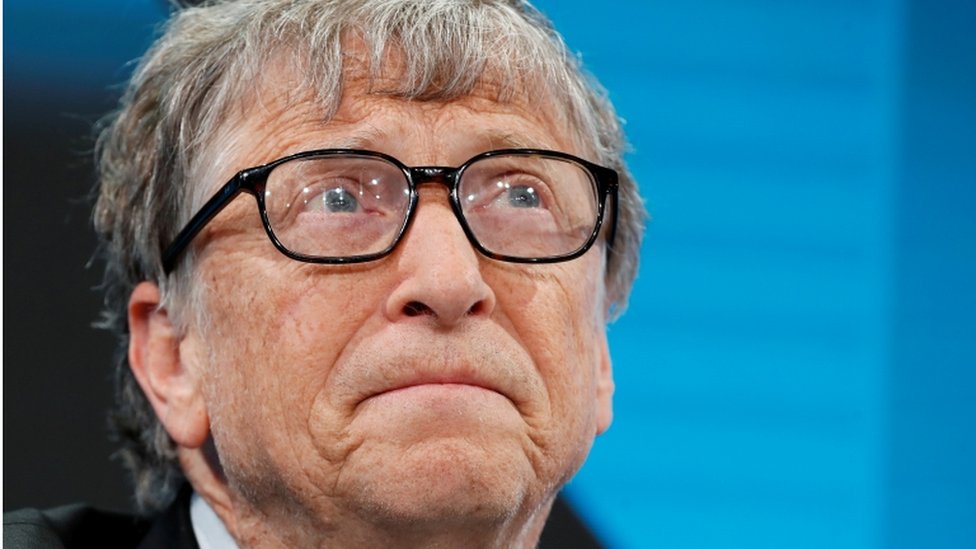
AI will replace doctors, teachers, others in 10 years – Bill Gates
Bill Gates, a co-founder of Microsoft, has claimed that improvements in artificial intelligence (AI) over the next decade may render humans superfluous for the majority of work.
In a recent interview with comedian Jimmy Fallon on NBC’s The Tonight Show in February, the billionaire philanthropist discussed how AI may take over many facets of life and business.
Gates remarked that expertise is currently “rare”, emphasising the continuous reliance on human specialists in industries such as medicine and education.
For example, we continue to rely on highly trained individuals, such as “a great doctor” or “a great teacher”, whose knowledge cannot be simply replaced by AI.
However, “with AI, over the next decade, that will become free, commonplace — great medical advice, great tutoring,” Gates said.
READ ALSO:
- Senate seeks FG’s immediate intervention to slash data prices
- Reno Omokri: Nigeria gives more opportunities than US, Britain, Canada
- Driver remanded for causing Osun varsity students’ death
In other words, Gates believes that the world is entering a new era of “free intelligence”, as he described in a recent interview with Harvard University professor and happiness specialist Arthur Brooks.
According to Gates, this transition will result in rapid breakthroughs in AI-powered technology, making them more accessible and affecting almost every part of our lives.
These breakthroughs will vary from more effective treatments and diagnoses to widely available AI instructors and virtual assistants.
“It’s very profound and even a little bit scary — because it’s happening very quickly, and there is no upper bound,” Gates told Brooks.
The discussion of how humans will fit into an AI-powered future continues.
Some analysts suggest that artificial intelligence will improve human productivity rather than completely replacing labour, hence driving economic growth and creating new jobs.
However, Microsoft AI CEO Mustafa Suleyman cautions that technological improvements in the coming years will disrupt the nature of most occupations across nearly all industries, potentially exerting a “hugely destabilising” influence on the workforce.
AI will replace doctors, teachers, others in 10 years – Bill Gates
International
Poland suspends migrants’ right to apply for asylum
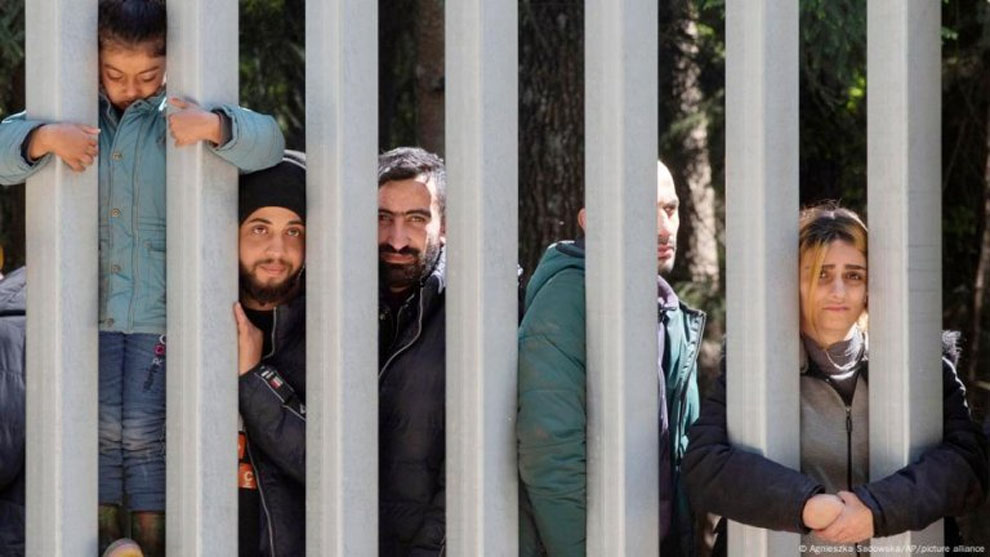
Poland suspends migrants’ right to apply for asylum
Poland has temporarily suspended the right of migrants arriving in Poland via its border with Belarus to apply for asylum.
Prime Minister Donald Tusk announced it would be happening after the controversial bill, which will allow Polish authorities to suspend this right for up to 60 days at a time, was signed into law by President Andrzej Duda.
Tusk had said it would be adopted “without a moment’s delay” while Duda said the changes were needed to strengthen security on the country’s borders.
But the law has been criticized by rights groups including Human Rights Watch, which said the EU should take legal action against Poland if it was implemented.
The group urged the country’s parliament last month to reject the bill, saying it “flies in the face of Poland’s international and EU obligations” and could “effectively completely seal off the Poland-Belarus border, where Polish authorities already engage in unlawful and abusive pushbacks”.
READ ALSO:
- Trump slaps 25% tariffs on car imports to US
- Reps pass bill to strip Vice President, governors, deputies of immunity
- Businessman collapses in court during trial over $578,000 cash seizure
The government said previously the suspension would only be applied temporarily to people who pose a threat to state security, for example large groups of aggressive migrants trying to storm the border.
Exemptions will be made for unaccompanied minors, pregnant women, the elderly or unwell, anyone exposed to “real risk of serious harm” by being returned and citizens of countries accused of conducting the instrumentalization of migration – like Belarus
Tusk has dismissed criticism from human rights groups.
“Nobody is talking about violating human rights, the right to asylum, we are talking about not granting applications to people who illegally cross the border in groups organised by Lukashenko,” he said in October.
Since 2021, Poland, Lithuania, Latvia and Finland have seen a huge increase in the number of people crossing into their countries illegally from Belarus and Russia.
Polish authorities have sent thousands of troops and border guards to police its border with Belarus and built a 5.5-metre-high steel fence along 186 km of the frontier where at times several thousand migrants have been left stranded.
Rights groups estimate more than one hundred people have died on the borders between Belarus and Poland, Lithuania and Latvia since 2021.
EU eastern flank countries and the European Commission have accused the Belarusian and Russian authorities of weaponising migration to create a new route into the EU to destabilize the bloc.
Poland suspends migrants’ right to apply for asylum
BBC
-

 metro2 days ago
metro2 days agoRivers administrator Ibas fires Fubara’s political appointees
-

 metro2 days ago
metro2 days agoJUST-IN: Ex-Oyo gov Ajimobi’s first child Bisola dies At 42
-

 metro2 days ago
metro2 days agoFG declares public holidays for Eid-el-Fitr
-

 metro3 days ago
metro3 days agoHow ritualists, native doctor drugged, murdered underage sisters in PH – Police
-
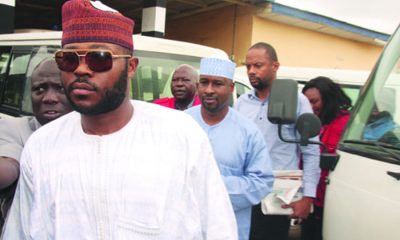
 metro1 day ago
metro1 day agoEFCC re-arraigns son of ex-PDP chairman for alleged N2.2bn oil subsidy fraud
-

 Africa2 days ago
Africa2 days agoNiger coup leader sworn in as president for five years
-

 metro2 days ago
metro2 days agoNatasha: Murray-Bruce slams Atiku, defends Akpabio
-

 International2 days ago
International2 days agoAI will replace doctors, teachers, others in 10 years – Bill Gates

